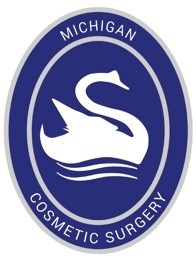Michigan Cosmetic Surgery conducts Blockchain research in health care with the world health authorities
Get on Wall Street with StreetInsider Premium. Claim a 1 week free trial here.
Southfield, Michigan – (Newsfile Corp. – July 19, 2022) – A cosmetic surgery practice in Michigan has announced that it is partnering with world health authorities and FDA-designated standard organizations to innovate the blockchain to make health care safer, starting with implantable medical devices . Michigan Cosmetic Surgery, led by Board Certified Plastic Surgeon Dr. Mariam Awada, leads the GS1 US Healthcare Initiative blockchain development for plastic surgery FDA-regulated medical devices, focusing on the use of breast implants for global breast augmentation patients.

Michigan cosmetic surgery logo
To see an improved version of this graphic, please visit:
https://images.newsfilecorp.com/files/8668/131237_c7202e28740318d8_001full.jpg
In line with the Federal Trade Commission and the US Consumer Safety Blockchain Innovation Act, Michigan Cosmetic Surgery’s blockchain development announcement comes at a time when collaboration with several stakeholders has the potential to improve US technology advances and safety and value for the healthcare supply chain. Dr. Awada has worked with the leadership of the American Society of Aesthetic Plastic Surgeons and Women Plastic Surgeons to develop a GS1 US Healthcare Initiative standards-based blockchain. This prioritizes safety and support for clinical research related to FDA-regulated devices, such as breast implants used in breast reconstruction and breast augmentation and face-filling implants, and drugs that include Botulinum Toxin A.
In pursuit of its industry goals, Michigan Cosmetic Surgery has aligned itself with the leaders of female plastic surgeons and global female plastic surgeons who aim to improve global health and safety. The practice leads collaborations and discussions with several stakeholders aimed at improving patient safety and healthcare, while laying the foundation for plastic surgery modernized artificial intelligence-based research.
As a member of WHO’s Global Blockchain Standards, Dr. Awada shares success stories and promotes use cases for blockchain implementation that the practice hopes will improve the health care sector.
“Timing is crucial, since we are at the crossroads of spending $ 2 trillion in health care, but fall short in value and safety rankings,” says Michigan Cosmetic Surgery. “At least 15% of the drugs consumed are counterfeit due to limited ability to authenticate medical devices. As a provider, we stand strong for blockchain-based patient support and automated processes to improve objective real-time data and features. This is an opportunity for collaboration between multiple stakeholders to achieve operational excellence while strengthening both providers and patients. ”
Possible benefits may include cyber-secure information and new channels for communicating FDA-regulated medical device results, as well as enabling real-time objective demonstration of safety and efficacy.
“This is actionable science-based information that has the potential to govern our next generation of personalized and safer healthcare while restoring value and providing new artificial intelligence to protect patients,” the practice said.
Since 2012, Michigan Cosmetic Surgery has been a member of the United States and the Global Standards Healthcare Initiative and has helped define and implement standards that address regulatory and authentication issues in the supply chain with members from 110 countries.
“Until recent years, we did not have the effective Web 3.0 blockchain as a general technology and basic IT system for global multi-stakeholder communications,” said a spokeswoman for Michigan Cosmetic Surgery.
Michigan Cosmetic Surgery has a team of physicians, nurses, and medical and business professionals who identify gaps in current processes and present blockchain-based solutions to help overcome patient, provider, and manufacturer communication constraints. Dr. Awada’s team is an Allergan Platinum Practice that manages a large volume of breast implants used for breast augmentation, breast lift and reconstruction. “It is an honor to be supported by leadership and to be part of the female plastic surgeons team to modernize health care with blockchain initiatives for patient safety in Michigan, nationally and globally.”
Michigan Cosmetic Surgery will continue to educate and push for blockchain development and implementation at all levels of medical development through the American Medical Association, American College of Surgeons, American Society of Aesthetic Plastic Surgeons, American Society of Plastic Surgeons and International Society of Aesthetic Plastic Surgeons. The aim of the practice is to promote education and awareness of blockchain capabilities together with various use cases with priority for long-term tracking of medical equipment.
“In the medical field, however, we are not able to track the path a breast implant takes from the time it was created for removal. The blockchain has the potential to solve gaps in total product life cycle management and monitor that supply chain. It is a platform that will provide both suppliers and “patients have the opportunity to communicate more effectively with each other. This can prevent shortcomings in the production process that occurred during the PIP crisis in Europe and affected hundreds of thousands of women in Europe.”
The practice adds that it ultimately wants to solve any problems that may still limit the health industry’s ability to perform long-term tracking of medical equipment. “The blockchain is where the answer to this problem lies. We hope that by innovating this technology we will be able to optimize the safety of patient support before, during and after placement of medical equipment, whether it is an orthopedic, heart or breast implant. . ”
Michigan Cosmetic Surgery was established by Dr. Mariam Awada in 2003 and has grown into one of the state’s most recognized cosmetic surgeries. As a spokesperson for patient safety, the board-certified plastic surgeon Dr. Awada has twenty years of experience in cosmetic surgery and is an expert in accreditation of surgical centers. She also holds several MIT certificates in the blockchain and business and has volunteered for the World Health Organization designated GS1 Global to create and implement global business standards that address critical supply chain issues.
For more information on Michigan Cosmetic Surgery, see its website or contact:
Mariam Awada, MD FACS
248-948-5500
[email protected]
To see the source version of this press release, please visit


